Best Work Boots For Plantar Fasciitis

When you have plantar fasciitis, it can hinder your performance at work, so choosing the right work shoes is very important. What Causes Plantar Fasciitis? Plantar fasciitis is actually caused by tears in the plantar muscles, leading to inflammation and pain. Prolonged activities and standing can damage the plantar muscles. Construction workers, healthcare, and military professionals are particularly prone to this condition.

Essential Features of the Best Work Boots for Plantar Fasciitis:
-
Good Arch Support: Choose shoes with good arch support to reduce pressure on the plantar fascia. Arch support helps distribute body weight and lessen the burden on the plantar fascia.

- High-Quality Insoles: Insoles should have good cushioning to absorb impact and reduce pressure on the plantar fascia. You can choose insoles specifically designed to alleviate plantar fasciitis. LASTING PINNIP's waterproof steel toe work boots Whale and Seals. Each pair of shoes comes with two sets of thin and thick PU insoles.
-
 Stability: The heel of the shoe should be firm to provide good support and prevent excessive movement of the foot inside the shoe, which can further damage the plantar fascia.
Stability: The heel of the shoe should be firm to provide good support and prevent excessive movement of the foot inside the shoe, which can further damage the plantar fascia. - Soft Soles: The soles should have a certain level of softness to provide good cushioning and support, reducing foot pressure.
- Proper Fit: Ensure the shoes fit well, not too tight or too loose. Tight shoes can compress the feet and increase the burden on the plantar fascia, while loose shoes fail to provide adequate support.
Choosing the right work shoes can significantly reduce the symptoms of plantar fasciitis and help you perform better at work. If possible, try on a few different pairs before purchasing to find the ones that best fit your foot shape and needs.


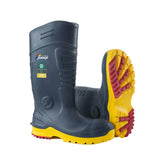

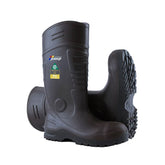

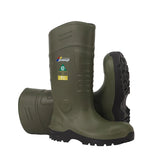

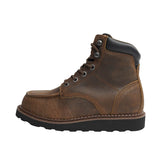
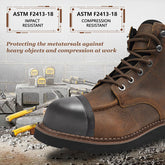
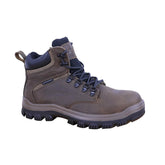
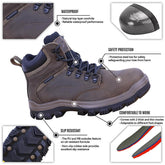
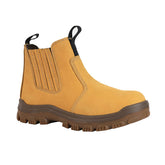
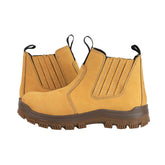








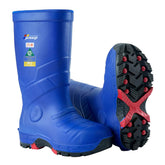

Leave a comment
Please note, comments need to be approved before they are published.